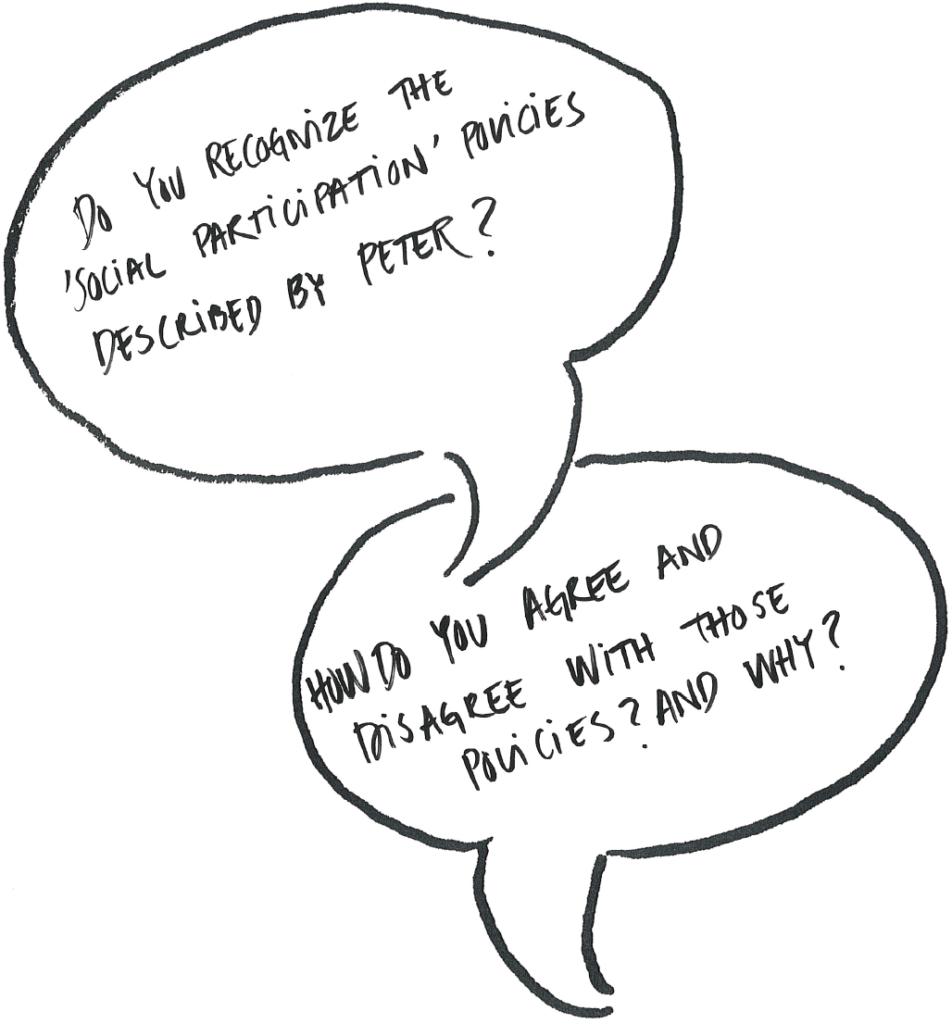Keywords: Participation, mental health support, professional values
In this resource, you will find the story “Peter and the Gaul’s in the Roman Empire” and two related themes with each their questions, exercises and related materials:
- Theme 1: The importance of public mental health professionals in the community
- Theme 2: The expectations of participation in society while suffering from mental health issues
You can jump to the different themes by clicking the title of the theme you wish to work with.
Read the case before continuing with the themes:

music by Coma-Media from Pixabay
THEME 1: The importance of public mental health professionals in the community
In this story we read/hear about Peter; a professional who supports people with mental health issues in their everyday lives. He visits, listens, and whenever appropriate, stimulates the service users to cross their comfort zone to gain new experiences of coping. Consistency is key in his work.
Social workers play a crucial role in supporting those who deals with mental health issues. Social workers can therefore be viewed as the ‘front line responders’’ who will be the first in contact with people and communities that are affected by mental health issues.

After reading the story, discuss the following questions:
- The last sentence in the quote (section 7 of the story) says: “The value of the professional is that he stays”. What do you think the author means by this? How do you evaluate his position?
- What professional or other values are in your opinion guiding Peter’s practice and perspective on his work in general?
- What are in your opinion some of the challenges in Peter’s experiences for him to be able to work in accordance with his professional values?
- How would you handle these challenges?
Extra material to “The importance of public mental health professionals in the community”
Read Arkin’s case: The Bumpy Roads to Togetherness

THEME 2: The expectations of participation in society while suffering from mental health issues
Living with mental health issues in today’s fluid, diverse, and highly dynamic urban neighborhoods can be challenging.
For example, those who lives with mental health issues are dealing with negative stigmas, stereotypes and exclusionary mechanisms within society. Evans-Lacko et al. (2010) state that stigma’s related to mental health issues are associated with ignorance, prejudice, and discrimination. Stigma’s are not only harmful for and experienced by an individual, but are also being experienced by communities and groups within society.
Society is modeled for people to take control over their lives, and be resourceful and active. However, not everyone are able to meet those standards, and sometimes need support and professional guidance.

Peter refers to the service users as ‘the Gaul’s in the Roman empire’: “Alone they get isolated and loose. Together they stay strong against society.”
- What do you think he means by this?
In section 4 of the story, Peter labels the emphasis on social participation in current social policy as ‘thinking in chains’.
- What do you think he means by this?
- What values are in your opinion underlying this dominant thought on the merits of participation?
- What critical arguments, based on your own experiences and Peter’s story, could you formulate to soften the claim of the individuals’ responsibility to fully take his or her part in society?
Extra material to “The expectations of participation in society while suffering from mental health issues”
Read section 1 and 2 of the case De Boeg (A Place for all is a Place for No One) to understand more about the policy transformation from Welfare to Participation Society.

References
Evans-Lacko, S., Henderson, C., & Thornicroft, G. (2013). Public knowledge, attitudes and behavior regarding people with mental illness in England 2009-2012. The British Journal of Psychiatry, 202, 51-57.




